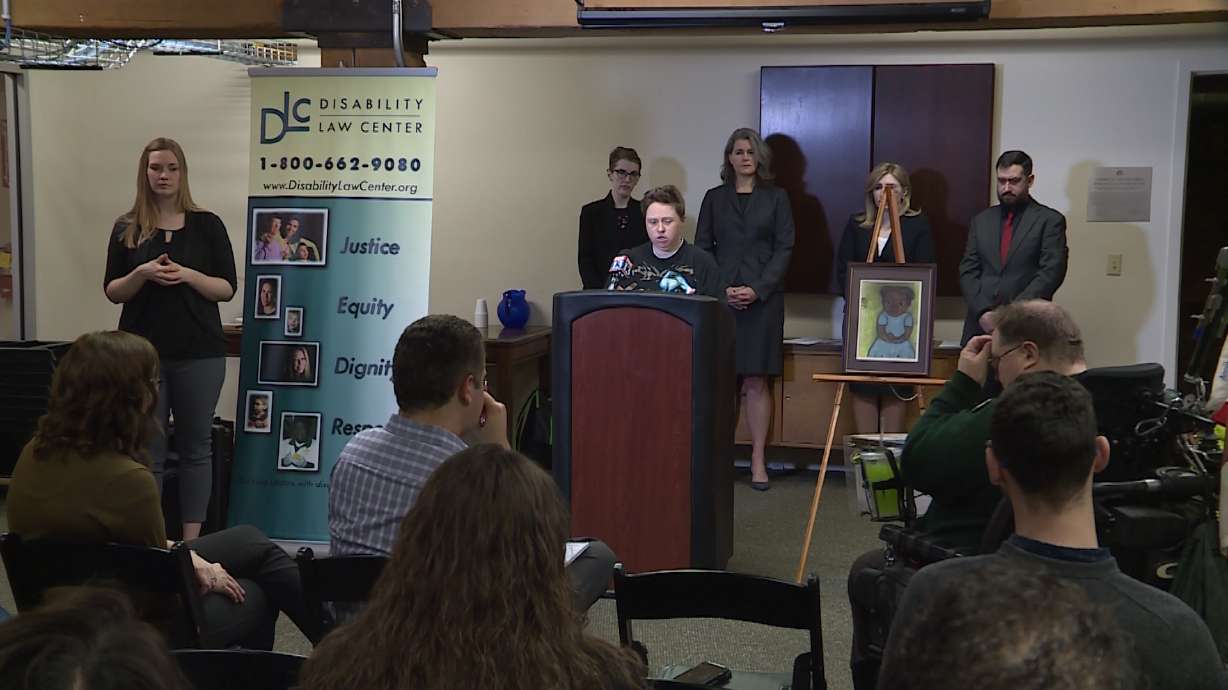Estimated read time: 3-4 minutes
This archived news story is available only for your personal, non-commercial use. Information in the story may be outdated or superseded by additional information. Reading or replaying the story in its archived form does not constitute a republication of the story.
SALT LAKE CITY — Up to 300 intellectually disabled and institutionalized Utahns will now have the option to live wherever they want to live.
The state recently settled a lawsuit filed by the Disability Law Center against the Utah Department of Health early last year, which pointed at overcrowding and limited access to other housing options among care facilities as "isolating" and "discriminating" for a class of Medicaid-eligible individuals who live in a private intermediate care facility and are capable of living in a community-based setting.
"These are people in Utah who want to live in and be part of the community, but instead, spend their lives segregated in institutions away from family and friends," the lawsuit states. "These people are deprived of the choice to live in the community and we as Utahns are deprived of a community inclusive of people of all abilities."
The state, or more specifically, the Medicaid program, serves the medical needs for nearly 6,000 intellectually disabled Utahns, and up until the settled-upon agreement between parties, patients could only move out of intermediate care facilities with proper approval.
The state will now cover the cost to transition institutionalized individuals who want to move to other homes or community-based programs — including living on their own, where appropriate, or in small group settings or with roommates, where support services will be brought to them, wherever necessary.
"It's where any of us would be living," Angie Pinna, director of the Division of Services for People with Disabilities at the Utah Department of Human Services, told members of the Legislature's Health and Human Services Interim Committee on Wednesday. She said some people are able to work and will live more independently and others will need help or other support to live in a less restrictive setting where they might be more comfortable.
"We want to support that person to be integrated and to the degree of integration that they want," Pinna said.
Utah lawmakers funded $7.3 million in ongoing funds to help with the transition costs, also leaving some to incentivize the 16 intermediate care facilities throughout the state to enhance the quality of their services to maintain their financial viability while losing people to other programs.
These people are deprived of the choice to live in the community and we as Utahns are deprived of a community inclusive of people of all abilities.
–Lawsuit
"They don’t see a very strong demand for their services right now from new individuals coming in," said Nate Checketts, director of the state's Medicaid program. He said $2.4 million will be used to help facilities maintain quality of care while decreasing the number of Medicaid-licensed beds.
In most cases, Checketts said, it will cost the state less to house people in the community than at the specialized care facilities, which charge a flat rate for their services.
The departments have also agreed to provide educational materials and information about home and community-based services to people living in intermediate care facilities, so they will better understand what life outside the facility might entail, how they would pay their rent, find transportation, and other engagement opportunities they might experience. The state will also keep a close eye on the people who decide to move and make sure they are getting their needs met.
"I look forward to our communities welcoming these individuals as warmly and sustainably as possible," said Ann Silverberg Williamson, director of the state's Department of Human Services. She thanked the parties for the shared desire for "every member of our community to lead self-determined lives."
The Utah departments of Health and Human Services have already moved 37 people from highly supervised Intermediate Care Facilities to a home or community-based care setting, with 12 more planning to move this year. Another 150 patients will transition next year, with 25 patients a year after that, as long as state funds hold out.









